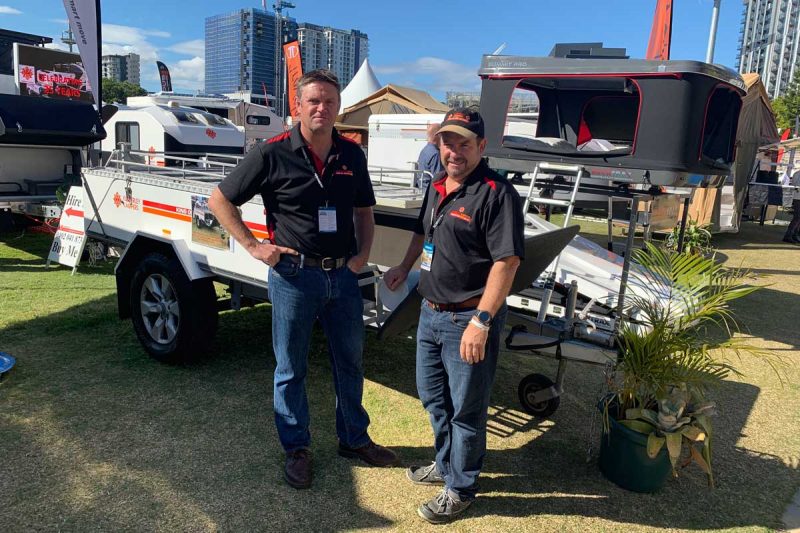In late 2021 was fortunate enough to do a Kimberly Kampers factory tour. We may no longer manufacture mainstream cars in Australia, but the caravan manufacturing business is alive and well. Australia has more than 200 caravan manufacturers, and with the societal effects of Covid, more and more people are queuing up to buy a caravan and travel our great sunburnt land.
Some manufacturers, like Kimberly Kampers, are so popular that you may have to wait 2 years for your new caravan.
Kimberly Kampers is an Australian manufacturer of quality light weight off road off grid camper trailers and caravans.
History of Kimberly Kampers
Kimberly Kampers was first established in 1994 to meet travellers’ need to tow a trailer with a tent attached. Better known as a camper trailer. Since then, they have expanded their range to include:
Kimberly Kamper – Camper trailer
Kimberly Karavan – Hybrid caravan with solid walls that expand, enabling compact travel but full-size living
Kimberly Kruiser – Full-size luxury Caravan
All their products are designed for 4wd/off the beaten track off-grid living. This translates to taking your Kimberly to locations with no power and water supply besides what you have on board.
For almost 30 years, Kimberly has made a name for itself through luxury, quality and innovation. As a result, growing their business and sold more than 8000 units in 17 countries globally.
All has not been calm Kruising
Being a manufacturer is tough. The day I visited, one of their suppliers of power products told them they could only supply 5% of the product they had ordered for the foreseeable future. This would mean only 5% of orders could leave the factory. Still, for Kimberly, this is just part of being an Australian manufacturer.
In December 2017, the then owners of Kimberly Kampers went into voluntary administration, followed by liquidation in July 2018. The factory was closed, and the assets were sold off.
The current owner and previous Queensland dealer, James Cockburn, believed in the brand vision enough to buy the brand. In 2019 he restarted the business in the same Ballina, NSW factory to grow the company to better things.

Just as Kimberly found its feet, COVID hit Australia. What started as a disaster turned into a massive boost for the company, with more Australians wanting to travel at home. Next came not one but two floods of 2022. Although the factory was spared, it affected staff and key suppliers. To the point that Kimberly had to bite the bullet and purchase their own machinery to construct their products’ composite walls.
Fast forward to today, and although they are hampered by staff shortages and cost increases, they expect to double production in 2022, proving Australian manufacturing is alive and well.
Kimberly Kamper factory tour
Kimberly Kampers hand build their caravans and camper trailers on site in their factory in northern NSW. Their facility, which also houses their administration operation, is divided into different sections to create a production line for their various models. Specialised craftspeople build and assemble the various parts to deliver a finished product, as we would see in a showroom. Note Kimberly models are so popular you are unlikely to ever see a showroom model as they are all presold.
Metalwork.
Production starts with steel turned into hot dipped galvanised steel chassis.
Fibreglass and composite materials
Kimberly builds their products with alloys and thermoplastic materials to maximise weight saving, with the only wood used for decorative purposes.
Here we can see two different models being assembled as part of the production line
Canvas and upholstery
Australian manufactured canvas is sewn into various tents, and awning solutions need for each model. Kimberly even manufactures their own lounges inhouse with optional Australian leather for that extra bit of luxury
Electrical
Kimberly uses prebuilt wiring looms and harnesses to save weight and speed the manufacturing process
Accessory fit out
Inhouse custom-built aluminium cupboards and accessories are fitted.
Final touches and testing
The team performs product setups and testing in preparation for customer delivery final touches.